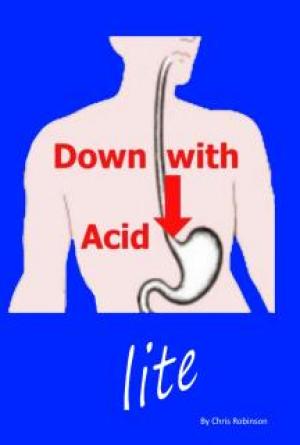amounts of water are other treatments that work for some sufferers but not
for others.
In some cases, vigorous exercise has been shown to be very effective in
relieving and ending an acute attack (this produces about the same results
as the use of oxygen therapy by increasing the levels of oxygen in the body).
© 2009, Douglas Hanna All Rights Reserved
“Everything About Chronic Headaches” by Douglas Hanna
Page 63 of 111
8: How to Fight Chronic Daily Headaches
If you have chronic daily headaches, your treatment will have two goals; to
prevent future attacks and to relieve your headache.
Prevention includes the taking of prescribed drugs, avoiding or minimizing
the causes of your chronic daily headaches, and learning such self-help
measures as biofeedback or relaxation exercises. If your doctor suggests
prescription drugs, make sure you understand the side effects. Also, be
aware that it may take several weeks for these medications to become
effective. This means you need to be patient and cooperate with your doctor
as he or she works to help you find the best treatment.
How you are treated for these headaches will depend on which type of
headache you have - such as whether medication overuse is contributing to
your headaches. For example, if you are taking pain relievers more than two
days each week, the first step in your treatment may be to stop using these
drugs.
It is important to understand that I am not a physician nor a trained
specialist in headaches or headache relief.
The information in this chapter and throughout this book is based on
research I have done over the past several months and represents the best
information I was able to find from a variety of sources.
You should never you take any of the medications cited here
unless prescribed by your doctor after personal consultation.
Preventive Medications
There are a variety of preventive medications used to treat chronic daily
headache. Your doctor will select a drug depending on the type of chronic
daily headache you have. You should be warned that preventive drugs
typically take several weeks to build up in your system and become fully
effective. Here are the medications your doctor may recommend.
© 2009, Douglas Hanna All Rights Reserved
“Everything About Chronic Headaches” by Douglas Hanna
Page 64 of 111
Antidepressants
Antidepressants such as Amitriptyline (Aventyl), nortriptyline (Pamelor)
and other tricyclic antidepressants are the most widely used treatments for
all forms of chronic daily headaches. These medications are valuable because
they also help treat depression, anxiety and sleep disturbances that often
accompany chronic daily headaches.
SSRIs
There is also evidence that suggests other antidepressants such as the
selective serotonin reuptake inhibitors (SSRIs) may be effective in treating
chronic daily headaches for some sufferers.
SSRIs that have been used to treat chronic daily headaches include
fluoxetine, sertraline, paroxetine, nafazodone, veniafazine, citaloprom and
escitalopram. These SSRIs can have adverse effects so, again, it is important
you discuss these with your doctor.
The adverse side effects can include:
Loss of appetite, weight loss
Dry mouth
Irritability / anxiety
Sleeplessness and drowsiness
Increased appetite, weight gain
Allergic reactions
Shaking
Dizziness
Headache
Fits / convulsions
Disturbance of sexual function (this also may be an effect of
depression)
Sweating
Bruising
© 2009, Douglas Hanna All Rights Reserved
“Everything About Chronic Headaches” by Douglas Hanna
Page 65 of 111
Manic or hypomanic behavior
Abnormal movements
Low sodium level
Suicidal thoughts
Beta-blockers
While these drugs are most commonly used to treat high blood pressure,
they are often helpful in treating episodic migraines.
Beta-blockers used to treat chronic daily headache include atenolol
(Tenormin), metoprolol (Lopressor, Toprol), nadolol (Corgard), propranolol
(Inderal) and timolol (Blocadren). In some cases these beta-blockers are
prescribed in combination with antidepressants.
Anti-seizure Drugs
Anticonvulsant drugs used in migraine prevention are also being used
increasingly to treat chronic daily headache. Drugs in this category include
divalproex (Depakote), gabapentin, (Neurontin) and topiramate (Topamax).
Muscle Relaxers
While not always effective in the treatment of chronic daily headache, muscle
relaxers such as tizanidine (Zanaflex) have helped in some cases.
NSAIDs (Nonsteroidal anti-inflammatory agents)
Naproxen and other nonsteroidal and anti-inflammatory drugs may be
effective in the treatment of chronic daily headache, especially if you're
undergoing withdrawal from some other pain relievers. Included in this group
are naproxen (Aleve, Anaprox), ketoprofen (Orudis) and mefenamic acid
(Ponstel).
Cox-2 Inhibitors
While these drugs are similar to NSAIDs, they work differently and have
fewer side effects. Medications such as Celebrex, Vioxx and Excedrin are
most helpful in treating chronic daily headache when combined with other
preventive medications.
© 2009, Douglas Hanna All Rights Reserved
“Everything About Chronic Headaches” by Douglas Hanna
Page 66 of 111
Typically, they are prescribed for one or two months if you are withdrawing
from pain relief medications, to help decrease the frequency and severity of
rebound headaches.
Others
Botox is currently being researched as a possible treatment for many chronic
daily headaches. Injections of a local anaesthetic around a nerve (nerve
block) or injections of a numbing agent and corticosteroid at the point of pain
are sometimes recommended for chronic daily headaches.
© 2009, Douglas Hanna All Rights Reserved
“Everything About Chronic Headaches” by Douglas Hanna
Page 67 of 111
9. Treating Tension-type Headaches
No one has yet to discover the definitive cause of tension-type headaches
because most scientists agree that there isn't just one specific cause.
There are many causes, including:
·Inadequate rest
·Anxiety
·Fatigue
·Hunger
·Overexertion
·Poor posture
·Emotional or mental stress, including depression
Tension-type headaches are usually triggered by some internal or
environmental stress. The most common of these stresses include social
relationships, friends, work and school.
Examples of things that can trigger stress include:
·Having problems at home or a difficult family life
·A new child
·Starting a new job
·Losing a job
·Deadlines at work
·Being a perfectionist
·Being overextended
Tension-type headaches usually occur in cycles because stress of any kind
can cause muscle tension, which in turn can cause the pain, which then
causes more stress, which causes more pain.
The symptoms of tension-type headaches include:
Gradual onset
© 2009, Douglas Hanna All Rights Reserved
“Everything About Chronic Headaches” by Douglas Hanna
Page 68 of 111
Mild, steady or dull aching - sometimes described as a vice-like
squeezing or heavy pressure around the head
An uncomfortable feeling in the back, shoulders and neck
Stress
Anxiety
Mood swings
Difficulty falling asleep and staying asleep
Irritability
Chronic fatigue
Mild sensitivity to light and noise
General muscle aches, and
Depression.
Tension-type headaches can last from one hour to all day and can occur once
or twice a week, once a month or less.
The pain of a tension-type headache generally increases with its frequency.
In other words, the more often you experience a tension-type headache, the
more painful it will probably be.
Tension-type headaches usually come and go over a prolonged period of
time. The pain is usually throbbing and affects the front, top or sides of the
head. Although the pain may vary in intensity throughout the day, the pain is
almost always present.
There are actually two kinds of tension-type headache. They are episodic and
chronic.
Episodic Tension-type Headaches
Episodic tension-type headaches are the most common of all headaches. Of
all the adults in America, anywhere from 30% to 80% suffer from occasional
tension-type headaches.
This type headache occurs randomly, less than 15 times per month, and is
usually triggered by temporary stress, anxiety, fatigue or anger.
© 2009, Douglas Hanna All Rights Reserved
“Everything About Chronic Headaches” by Douglas Hanna
Page 69 of 111
They may last from 30 minutes to several days and often begin in the middle
of the day.
Chronic tension-type headaches
Chronic tension-type headache is a daily or continuous headache, which
occurs more than 15 times a month. They may vary somewhat in its pain
during a 24-hour cycle.
These headaches can also be the result of anxiety or depression. They are
often accompanied by changes in sleep patterns, early morning or late day
occurrence of headaches, feeling of guilt, weight loss, dizziness, poor
concentration, ongoing fatigue, and nausea.
Preventing Tension-type Headaches
Although there are medications available that can provide temporary relief of
tension-type headaches, the best way to combat these headaches is through
lifestyle changes.
Here are some tips that can help you in this area:
Regular Exercise.
If you perform regular aerobic exercise such as walking, swimming or biking,
you can possibly reduce the frequency and severity of your headaches. This
is because exercise relieves stress, relaxes your muscles, and increases beta-
endorphins, one of your body’s natural stress relievers -massage, stretching,
yoga and Pilates classes can also help you prevent or cut down on tension
headaches.
Managing Stress
There are other techniques such as biofeedback training and relaxation
therapy that can also help reduce stress.
Biofeedback training teaches you to control certain body responses that help
reduce pain.
There are other relaxation techniques that can help with daily headaches
such as breathing and meditation.
© 2009, Douglas Hanna All Rights Reserved
“Everything About Chronic Headaches” by Douglas Hanna
Page 70 of 111
There is also progressive muscle relaxation, which is done by tensing one
muscle at a time, and then completely relaxing the tension until every
muscle in your body is relaxed.
There are special classes that can teach you these relaxation techniques or
you can learn them at home using books or tapes.
It is important to understand that I am not a physician nor a trained
specialist in headaches or headache relief.
The information in this chapter and throughout this book is based on
research I have done over the past several months and represents the best
information I was able to find from a variety of sources.
You should never you take any of the medications cited here
unless prescribed by your doctor after personal consultation.
Preventive Medications
The drugs used most often to prevent tension-type headaches include
fenoprofen (Nalfon), Flurbiprofen (Ansaid), Naproxen,
Oxaprozine, Nabumetone (Relafen), and ketaprofen (Actron), and Orudis
KT.
Tricyclic Antidepressants
Anti-depressants can also be used to prevent tension-type headache. They
include amitriptyline (Elavil), Desipramine (Norpramin), imapramine
(Tofranil), Doxeprin (Sinequan), Nortryptiline (Pamelor) and protryptiline Vivactil).
Other anti-depressants used to prevent tension-type headaches may include
Prozac, Serizone, Paxil, Zoloft, Effexor, Celexa, Lexapro, Desyrel, Wellbutrin
and Phenelzine. These drugs act on tension-type headaches. They may work
at far lower doses and may also improve sleep, which is often disturbed in
headache patients.
Antidepressants such as paroxetine (Paxil), venlafaxine (Effexor) and
fluoxetine (Prozac, Sarafem) may produce fewer side-effects than tricyclic
antidepressants but generally are less reliable in preventing headaches.
© 2009, Douglas Hanna All Rights Reserved
“Everything About Chronic Headaches” by Douglas Hanna
Page 71 of 111
Alpha-2 adrenergic agonists, such as tizanidine are used to help prevent
tension-type headaches, as are certain opioids.
Some physicians have tried gabapentin for these headaches.
NSAIDs: NSAIDs, such as ibuprofen (Advil, Motrin IB and others) and
ketoprofen (Orudis KT) may be used to manage tension-type headaches.
Other Medications: There are other medications available that may prevent
tension headaches. They include divalproex (Depakote) and gabapentin
(Neurontin).
Muscle relaxers, such as tizanidine (Zanaflex) have also helped some
patients.
Migraine medications have also been used to prevent tension headaches,
although there are few studies available that indicate how effective they
really are.
Keep in mind that preventive medications usually require several weeks to
build up in the nervous system before having much effect. So, if you do not
see any improvements shortly after you begin taking the drug, don’t get
frustrated. It may take a couple of months or longer.
And, you may need a combination of different medications for maximum
effectiveness.
Treating Tension-type Headaches
While you may not be suffering from depression, antidepressant drugs may
be helpful in treating tension-type headaches.
In many cases, you will be able to successfully treat tension headaches with
such over-the-counter analgesics as aspirin, acetaminophen, ibuprofen,
naproxen, etc. Side effects of acetaminophen are rare but, if the drug is
taken for long periods of time and in large doses, it can cause serious liver
damage.
There are also prescription NSAIDs, such as naproxen (Naprelan, Naprosyn),
indomethacin (Indocin) and ketorolac tromethamine (Toradol).
© 2009, Douglas Hanna All Rights Reserved
“Everything About Chronic Headaches” by Douglas Hanna
Page 72 of 111
The side effects of these drugs include nausea, diarrhea or constipation,
abdominal or stomach pain, stomach bleeding and ulcers. These side effects
may sometimes be reduced or eliminated by taking the drugs after meals or
with milk.
It is important to understand that I am not a physician nor a trained
specialist in headaches or headache relief.
The information in this chapter and throughout this book is based on
research I have done over the past several months and represents the best
information I was able to find from a variety of sources.
You should never you take any of the medications cited here
unless prescribed by your doctor after personal consultation.
Combination medications: There are single medications that combine
aspirin or acetaminophen with caffeine or a sedative drug such as butalbital.
One example of this is Excedrin, which combines aspirin, acetaminophen and
caffeine. These combination drugs may be more effective in controlling these
headaches than pure analgesics. There are also brand-name drugs such as
Amidrine, Midrin and Migrex that are sometimes used to treat tension
headaches.
While many of these combination drugs are available over-the-counter, those
that combine aspirin or acetaminophen with a sedative are available only by
prescription.
These drugs can be addictive and can actually lead to chronic daily
headaches. This means they should not be used more than one day a week
and only with careful monitoring on the part of your doctor.
Other alternatives in the treatment of tension-type headaches are
barbiturates (butalbital), ergots (such as ergotamine or dihydroergotamine),
and anti-emetics such as prochlorperazine).
© 2009, Douglas Hanna All Rights Reserved
“Everything About Chronic Headaches” by Douglas Hanna
Page 73 of 111
Your doctor may also suggest muscle relaxants such as Flexeril and Soma.
(Note that these drugs do not actually relax skeletal muscles directly, but are
analgesic (pain-relieving) drugs that act on a patient's brain.)
Other drugs sometimes prescribed in the treatment of tension-type
headaches are opioids (meperidine and morphine), fenoprofen (Nalfon), and
flurbiprofen (Ansaid).
If you do have chronic tension-type headaches, you must strictly avoid habit-
forming analgesics.
You may find that biofeedback techniques can help.
© 2009, Douglas Hanna All Rights Reserved
“Everything About Chronic Headaches” by Douglas Hanna
Page 74 of 111
10. Alternative Treatments and Self-help Techniques
There are self-help techniques and alternative treatments that may help
lessen or even avoid many types of headaches. However, it is important to
keep in mind that none of these has been scientifically proven.
Some seem to have helped headache sufferers, others have not.
It’s up to you, under your doctor’s supervision, to try one or more of these as
this is the only way she or he can determine their effectiveness for you
personally.
In the chart below, you will find types of headaches and a list of self-help or
alternative treatments.
Go down the column for your type of headache, and then click on any
alternative or self-help treatments that interest you.
This will take you to a detailed explanation of the treatment.
This chart and its associated information are not meant to be a complete
listing of all possible treatments for headaches.
It represents some of the most popular alternate and self-help treatments.
For totally comprehensive information on alternative headache medicine, I
recommend the book “Alternative Medicine Definitive Guide – Headaches” by
Drs. Robert Milne, Blake More and Buton Goldberg, ISBN 1-88729918-1.
© 2009, Douglas Hanna All Rights Reserved
“Everything About Chronic Headaches” by Douglas Hanna
Page 75 of 111
Alternative Treatments Chart
Alternate
Cluster
Daily Chronic
Tension
Treatments
Migraines
Headaches
Headaches
Headaches
Oxygen Therapy
X X
Acupuncture
X X
X
X
Detoxification Therapy
X
Environmental Medicine
X
X
Ayurvedic Medicine
X
X
Naturopathy
X X
X
Ice and Heat
X
Nutrition Therapy
X
X
Massage
X
X
X
Hypnosis
X
Aromatherapy
X
X
X
Compresses and Steams
X
X







